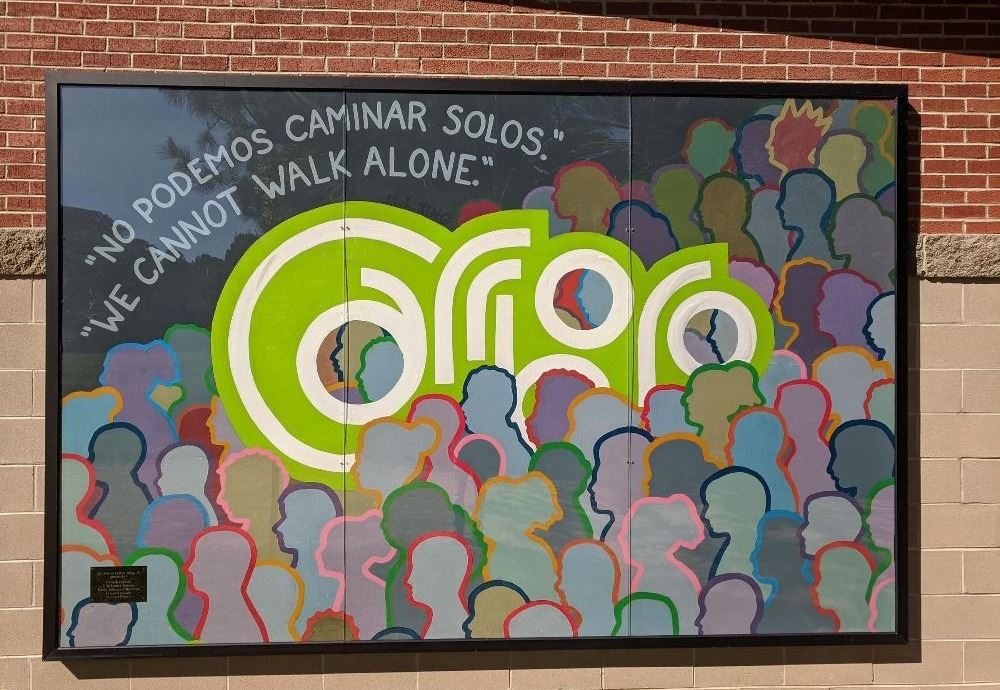Orange County continues to find itself among the healthiest counties in the Tar Heel State.
The University of Wisconsin Population Health Institute and the Robert Wood Johnson Foundation recently released the annual County Health Rankings, which had Orange County coming in second place in overall county health in North Carolina this year behind only Wake County.
This positive ranking is overshadowed, however, by the fact that the county has the largest income inequality for a county with more than 100,000 residents in the state.
Communications manager for the Orange County Health Department Kristin Prelipp said this distinction is nothing new for Orange County.
“I have to say, it was very similar to last years ranking, so that just means that we still have to keep talking about this, and we still need to keep working on this,” said Prelipp.
The number of children in poverty in Orange County varies widely by race, with 4 percent of white children living in poverty, 32 percent of Hispanic children and 25 percent of black children. And, according to the numbers, the vast majority of children born into poverty stay there.
“It’s estimated that 69 percent of children born into poverty will remain in poverty unless there is an intervention and/or a significant change in the system,” said Prelipp, “so that’s why we’re still talking about this.”
Prelipp said her department, under the leadership of the new health director Quintana Stewart, is taking measures to intervene.
“Our staff at the health department is attending racial equity seminars held by the Racial Equity Institute out of Greensboro. Also, other seminars organized by OAR, which is the Chapel Hill group Organizing Against Racism,” said Prelipp. “We’re also holding monthly caucus meetings within the health department; we have established a racial equity commission, and we are even bringing a contingent of staff, partners and community leaders to the Racial Equity Summit in Chicago in April.”
Prelipp said the problem is larger than Orange County and is systemic in nature.
She said she hopes that besides these efforts to alter the system that perpetuates this pattern of inequality, raising awareness of the issue will help as well.
“Orange County is a beautiful, affluent place, [but] it’s not that way for everyone,” says Prelipp. “If you drive around and get to know some of the families at your children’s school, you’ll understand that. So, just be aware.”
Related Stories
‹

How Americans’ Views of Racial Discrimination Have Shifted Since 2021, According to AP-NORC PollingSlightly less than half of U.S. adults believe that Black people face “a great deal” or “quite a bit” of discrimination in the United States, according to a new poll.

Orange County's NC Reps, Local Governments React to Anti-Diversity and Equity MeasuresAs a bill in the North Carolina House aims to ban diversity improvement efforts, local elected officials from Orange County are speaking out.

The California Wildfires Could Be Leaving Deeper Inequality in Their WakeThe California fires burned through a remarkable haven for generations of Black families avoiding discriminatory housing practices elsewhere.

'How Do We Normalize This Work?': New Segment on DEI Airs on 97.9 The HillThe Hill launched a weekly segment called "Conversations We Need To Have" featuring different voices and local leaders in the DEI space.

Orange County, Durham Habitat for Humanity Receiving Money from MacKenzie Scott DonationThe Orange County and Durham affiliates of Habitat for Humanity are receiving $9.5 million as part of a substantial gift to the U.S. organization announced Tuesday morning. The national organization shared that author and philanthropist MacKenzie Scott is committing $436 million in unrestricted giving to 84 Habitat affiliates, as well as to Habitat for Humanity International. […]

OC Commissioners Unanimously Approve Racial Equity Plan DraftThe Orange County Board of Commissioners recently unanimously approved an update to the initial One Orange Countywide Racial Equity Plan. Developed in October 2020, the framework aims to become a living document to uncover and address implicit biases in institutions and ensure race can no longer be used to predict life outcomes in the community.
![]()
Social Equity in Marijuana Industry Still Largely Pipe DreamWritten by THOMAS PEIPERT and MICHAEL R. BLOOD Terrence Hewing was working for a package delivery company in 2007 when police approached his cargo van in suburban Denver. He was early for a pick up, and someone out for a walk called authorities after seeing him napping in the driver’s seat. Officers found about a pound […]

Orange County’s Efforts To Equitably Vaccinate Minority Communities Show Early SuccessWhile several of Orange County’s minority communities have been underrepresented in the COVID-19 vaccine distribution so far, the county’s efforts to mitigate these barriers appear to be effective when compared to those across the state. Despite the African American, Hispanic, and Asian American communities of Orange County respectively accounting for 12.4 percent, 8.6 percent, and […]

Orange County Passes Reparations Resolution, Apologizes for Role in DiscriminationThe Orange County Board of Commissioners passed a resolution apologizing for its government's historical role in disenfranchising Black residents.

Report: Orange County is Best in Health and Wealth, Struggles with EquityThe Chamber For a Greater Chapel Hill and Carrboro held its annual State of the Community Report last week. In it, the chamber revealed how Orange County is faring amid the coronavirus pandemic, growing at a slower rate and still struggling to address racial equity. Presented during a virtual event hosted at The Graduate Hotel […]
›










